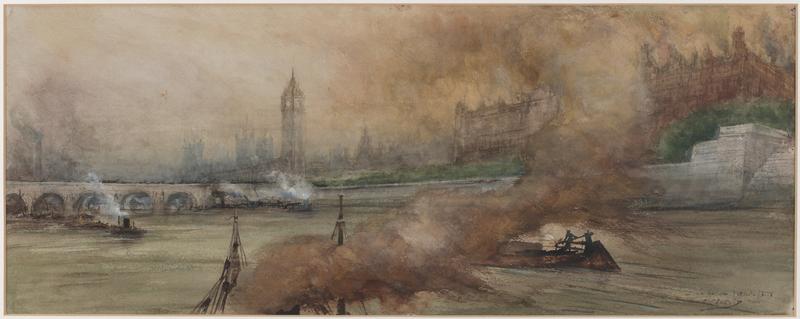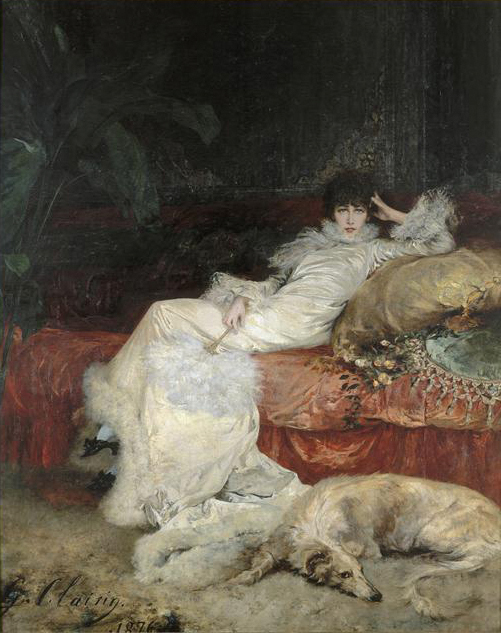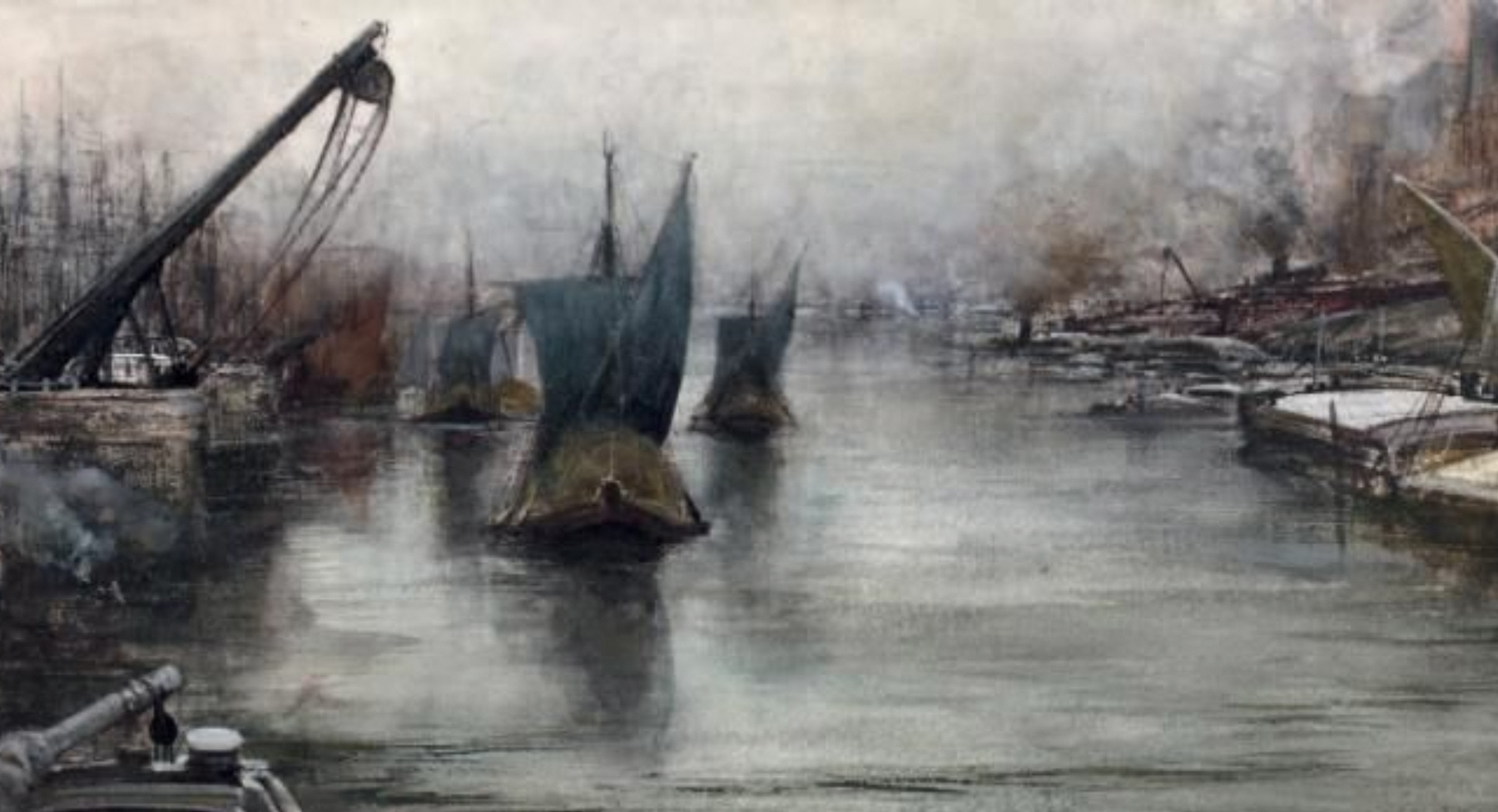
54. Georges Jules Victor Clairin, View of London
| Artist | Georges Jules Victor Clairin, French, Paris 1843–Belle-Île-en-Mer 1919 |
| Title, Date | View of London (Vue de Londres), 1898 |
| Medium | Watercolor and gouache with traces of black pencil |
| Dimensions | 8 5/16 × 22 13/16 in. (21.2 × 58 cm) |
| Inscriptions + Marks | Lower right: À ma bonne soeur G. Clairin / Juin 1898 |
| Provenance | [Michel Singer, Marché Serpette, Clignancourt, Paris, until 2011; to Weisberg]; Yvonne and Gabriel Weisberg, Minneapolis |
| Exhibition History | "Reflections on Reality: Drawings and Paintings from the Weisberg Collection," Mia, 2022–23 |
| Credit Line | Promised gift of Gabriel P. and Yvonne M.L. Weisberg, Minneapolis |

Georges Clairin’s achievements as a painter of landscapes and distant cultures—notably North Africa—are largely overshadowed by his lavish portraits. His fame rests on one in particular: his sensual rendition of his sometime lover and longtime friend, the celebrated French actress Sarah Bernhardt in her Paris mansion (fig. 1). For decades after their liaison ended, Clairin would accompany Bernhardt (1844–1923) on her travels outside Paris. She especially enjoyed Belle-Île, an island off the Brittany coast, which explains Clairin’s many pictures of that area.
Clairin also went along when Bernhardt traveled to London to perform in June 1898.1 While there he made two watercolors of the Thames. One is the Weisberg sheet. It was drawn from a vantage point on the South Bank, looking upstream to Westminster Bridge with the Big Ben tower and the Houses of Parliament just beyond. The other watercolor (fig. 2) lacks prominent landmarks, so its viewpoint is uncertain. In both scenes, Clairin employed the unusual conceit of letting viewers feel as though they are on a boat traveling on the Thames. Smoke and steam swirl in the damp air. These London views are atypical for Clairin, and he did not offer them for sale. He dedicated the present drawing to his sister and the other to his nephew.
GPW

Notes
Bernhardt performed at the Grand Theatre, Croydon; see The Stage, June 9, 1898. ↩︎